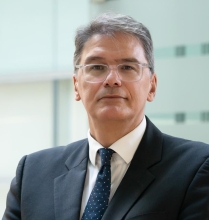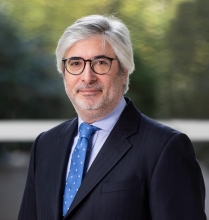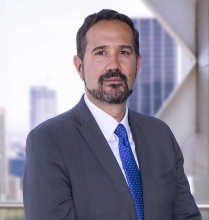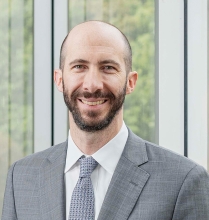International Arbitration Newsletter - March 2020 | Regional Overview: Europe
The most relevant European updates from the global International Arbitration and ADR practice group at Garrigues.
FRANCE
An award decided solely under the UNIDROIT Principles upheld
The Paris Court of Appeal (the PCA) has rejected a challenge by an Indian steel company, Prakash Steelage , to an award in favour of its Romanian counterpart, Uzuc, part the SCR Group , concluding that the ICC tribunal did not exceed its mandate by deciding a dispute between the parties exclusively on the basis of the UNIDROIT Principles.
Uzuc obtained the ICC award for €1 million plus interest in 2017 in a dispute over a contract for the supply of stainless steel tubing. The award was then challenged on the grounds that the arbitral tribunal had violated its mission by rendering an award applying the 2010 UNIDROIT Principles rather than Indian law, when this was the law chosen by the parties. The PCA observed, however, that throughout the arbitration proceedings the parties had been at loggerheads over the applicable law, Uzuc maintained that Romanian law should apply while Prakash Steel claimed that that Indian law was applicable.
The PCA Court rejected the fact that the case had been decided on the basis of equity or that the parties had agreed on Indian law. It also rejected other grounds of challenge, including that the arbitral tribunal lacked jurisdiction and violated due process, and that the award violated international public order. The PCA found that an ICC tribunal may decide exclusively on the basis of the UNIDROIT Principles, in the event the parties do not agree on the applicable law.
HUNGARY
Hungary fails to annul and revise an intra-EU BIT award
An ICSID annulment committee has dismissed Hungary’s annulment application of a €23 million award (ICSID Case No. ARB/13/21) in favour of Edenred, a French company that provides voucher and other in-kind payment services for employees. In spite of the annulment proceedings, Hungary has already paid Edenred voluntarily. This is the first time that an ICSID annulment committee has rejected an annulment claim based on the European Court of Justice´s (ECJ´s) 2018 decision in the Achmea case.
In 2016, an ICSID tribunal had ordered Hungary to pay Edenred €23 million plus interest for changes in legislation on employee fringe benefits provided with vouchers that had breached the bilateral investment treaty (BIT) signed by France and Hungary.
Hungary challenged the award by bringing an annulment application based on the the Achmea case where the ECJ had concluded that arbitration clauses contained in BITs signed between member states were incompatible with EU law. However, in the arbitration proceedings Hungary failed to raise an objection based on the Achmea ruling in time.
MALTA
The Maltese government withdraws UNCITRAL claim over allegedly defective concrete used on the building of a public hospital
The Swedish construction group, Skanska, has confirmed that Malta has withdrawn its notice of arbitration a partial award, which had concluded that Malta had waived its rights to file claims over any possible defects that could arise throughout the construction of a €600 million public hospital.
Skanska won a tender offer in 1995 to build a large hospital on the outskirts of the island’s capital city, La Valletta. The contract, governed by Maltese law, was superseded by a project closure contract signed by the parties in 2009, two years after the hospital opened. This closure agreement contained a waiver clause freeing Skanska and the rest of the contractors from liability in case any future defects were discovered or became apparent. Local press published the clause’s wording, which established an exemption from liability “for all and any further, past, present or future concerns, claims or disputes” and a total waiver of rights: “each Party waives with binding effect all its rights”.
SPAIN
Split tribunal rules in Spain’s favour in renewable energy claim
Filed in 2011, this is the first and longest running of the treaty cases against Spain over its renewable energy reforms. It has ended with a substantially reduced award for the investors (amongst which Impax Asset Management and a subsidiary of the American energy group AES had the biggest stakes), as a divided panel ruled they were only entitled to expect a reasonable return on their investments rather than unchanging tariffs. This UNCITRAL case has Geneva as its arbitral seat, is administered by the Permanent Court of Arbitration in The Hague and is commonly referred to as PV Investors (which stands for photovoltaic –or solar panel– plants).
The majority of the arbitral tribunal rejected the investors’ primary claim that reforms to the incentives regime for PV plants had frustrated their legitimate expectations that tariffs would remain unchanged for the entire life of these plants. The arbitral tribunal’s majority also concluded that the measures were not unreasonable, arbitrary, disproportionate or non-transparent. The investors did prevail, nonetheless, on their alternative claim by which they argued that the reforms thwarted their legitimate expectations of a “reasonable rate of return” on their investments, thus breaching the Energy Charter Treaty’s fair and equitable treatment standard.
In its decision, the majority argued that it was not bound by previous decisions but rather that it had a “duty to adopt principles established in a series of consistent cases” and to “contribute to the harmonious development of international investment law”. After analysing the previous 18 awards decided over the same facts, the majority of the arbitral tribunal concluded that the case law was “not unanimous” and that, in fact, it showed a “diversity of views”. Specifically, the majority of the arbitral tribunal noted that previous awards could be divided into three different categories. These had upheld claims that were broadly similar to the PV Investors’ primary claim, those had resulted in a total dismissal of the claims and others had in some cases upheld “with nuances and non-identifical approaches” claims similar to alternative claim.
Contacts




-
+52 55 1102 3570
-
+57 601 326 69 99



